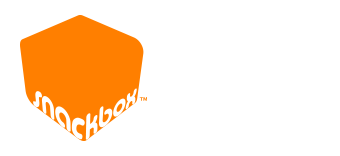Job Searching Secrets from the Frontlines
| By: Jenna (Gruhala) Oltersdorf | ||
To read this piece in its original form and to access the comments posted in response to this article, click here.
As an entrepreneur and principal of our public relations practice at Snackbox, I see resumes from a wide variety of job seekers throughout the country on a regular basis. Sadly, many of these resumes look nearly identical and do nothing in order to grab the reader’s interest.
In the marketing industry, you’re expected to be creative … so why is this not being translated into your resume?
Before we get started with tips, let’s throw some preconceived ideas out the window. Resumes should:
– NOT be limited to one page
– NOT be restricted to just black and white
– NOT be boring
Time and time again I find myself reviewing one page Word documents that quickly begin blending together. Suddenly I’m trying to remember if it was Kelly or Kerry that had the great, relevant experience.
So what can you do?
One of the first questions we ask clients in our line of work is: Who is your target? The same goes for your job search. Begin by determining your ideal position and the responsibilities attached to such a job. Research the companies that fit within those categories. Once you have established where you’d like to work, it makes it much easier to develop job-seeking materials.
Begin with a strong cover letter, two to three paragraphs in length. Keep in mind that this cover letter gives you an opportunity to “sell” your skills to the reader. Reference relevant experience listed in your resume. Customize that letter so I immediately know how you’re going to make my life easier because I’m looking to be helped, not help.
Are you sending your cover letter as an email attachment? If so, STOP. The body of your email becomes your cover letter these days.
During my last bout as a job seeker, I reoriented my resume so it printed horizontally rather than vertically, created a logo for myself and varied the font sizes. You wouldn’t believe the compliments I received. I’m not suggesting that everyone go to a horizontal resume, but I am suggesting that you build a personal brand that is consistent through your materials, just as you would for any client. A word of caution, though: remain professional. We all remember the pink, scented resume from Legally Blonde. That’s not (always) appropriate in any line of work.
Your resume should outline your experience, community service and education, among other things. If possible, keep it to one page, but if you’re seasoned in your line of work, by all means, use more pages!
Run spell check on ALL of your documents and verify that you have not misspelled your contact’s name. Don’t make it easy for them to immediately eliminate you from the running.
After delivering your cover letter and resume to the appropriate contact, follow up with a handwritten note and enclose a business card. The note is always a nice touch and helps you break through the clutter of other competing job seekers. Many of us have become so dependent on email that we’ve forgotten the art of a handwritten note.
A word about business cards: You can create a personal calling card that looks and feels professional quite inexpensively through places like Overnightprints.com. Include your name, cell phone number and personal email address.
Networking is king in any job search, no matter how weak or strong the economy. Make a list of the top companies with whom you’d like to work and begin researching them online. Go beyond the company Web site and find key decision makers on social networks like Twitter and LinkedIn. The more ways in which you can interact with company representatives, the more opportunity you have to network and get your foot in the door.
Don’t be afraid to follow up, within reason. Because I spend most of my day on the phone, I much prefer an email from candidates versus a phone call. But it’s always great to touch base and gives you another opportunity to continue to build rapport with your key contacts.
Once you’ve scored the interview, create a list of questions for your meeting. There’s nothing worse than asking if someone has further questions and they respond with “no”. Also, anticipate the questions you’ll be asked and prepare your responses. A well-rehearsed interviewee typically comes out on top.
After your interview, send another handwritten note, thanking the contact for their time. Take this opportunity to reiterate any key points that were discussed during your meeting.
In our industry, we’re all storytellers at some level. We understand how to talk with clients and it’s key in any job search to use those same skills to find and create career opportunities.
